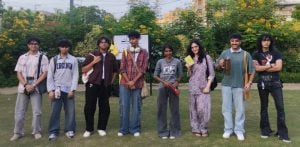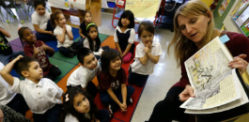"some of my friends just watched porn"
Desi boys and men can face difficulties when it comes to being taught about sex within their families and discussing the subject.
Sex education remains taboo and shrouded in silence and unease. Silence within the family can be profoundly damaging and problematic.
Socio-cultural norms and conservative interpretations of religion can hinder open dialogue for individuals from Indian, Pakistani, Nepalese and Bangladeshi backgrounds.
For girls and women, policing of their bodies and sexuality compound silence on issues around sex, a fact that has gained significant scrutiny.
However, is it the same for South Asian boys and men? What impact can socio-cultural norms and the taboo have, if any?
Traditional ideas of masculinity and patriarchal frameworks can significantly influence their understanding of sex and relationships. Visit BetterHelp for more information on this.
The family has a crucial role in shaping ideas and frameworks. Through communication, the family can support or challenge beliefs.
What is said matters, but so does what is left unsaid. Both aspects influence understanding and perspectives.
DESIblitz delves into whether Desi boys and men are taught about sex within the family and why it matters.
The Taboo of Sex Education in Desi Families

In many South Asian families, discussing matters around sex is considered inappropriate, shameful, or unnecessary.
Consequently, Desi boys and men may lack knowledge about sexual and reproductive health, consent, and relationships.
Mohammed, a 30-year-old British Bengali, told DESIblitz: “My parents, uncles and aunties were all old school.
“I would have got smacked hard if I ever talked about it when I was younger. I have no clue how I would have started that talk.
“For me, I learnt from films, friends, girlfriends, doctors, YouTube and porn.
“I watched experts on YouTube and learned about relationships from friends and films. Before 19, you could say I was oblivious to a lot.”
Mohammed’s words highlight that the taboo nature of sex education can stifle conversations within families.
Consequently, Desi boys can turn elsewhere to develop their knowledge. Sources like film and pornography can be problematic due to exaggerated depictions of sexual and romantic relationships.
Claire Meehan (2024), reviewing research on porn, reflected:
“Porn has increasingly been constructed as a risk to young people’s sexual, emotional and mental wellbeing, and development.”
Mohammed continued: “I talked to my doctor and looked at experts on YouTube; some of my friends just watched porn.
“Had to tell the idiots that it was extra dramatised and the porn with force and s**t was not good.”
“Told them to step back and think about how many girls in real life would like it like that.
“Had to tell them it’s not just about getting off, and remember protection.
“A lot of my friends didn’t know condoms aren’t 100% guaranteed. They were only told ‘glove up’ if anyone in their family said anything.”
Mohammed’s reflections on some of his friends’ reliance on pornography highlight its impact on their understanding of sexual relationships. It can lead to distorted perceptions of relationships and sexual interactions.
To effectively address contraception for Desi men, conversations must evolve beyond the guidance of simply saying “glove up”.
Being Taught Sex Education in Families Matters

Boys and men being taught sex education in families can encourage healthier conversations and facilitate vital knowledge sharing.
Knowledge about sexual health, boundaries, and emotional intimacy allows men to make informed decisions, take responsibility for their actions, and better communicate with their partners.
Yash*, from India, currently studying and working in the UK, asserted:
“My father and mother talked to my siblings and me about sexual health, both men’s and women’s, relationships and consent.
“Sanitary towels were not hidden; we all knew what they were. More of this needs to occur in families.
“I understand some feel uncomfortable speaking to parents. My cousins came to my parents and had discussions.
“The family is an important space where men can develop awareness for healthy relationships.”
“It’s a way of dismantling the male entitlement Asian cultures can help produce when it comes to sex.
“It could help stop some of the abuse women face. I don’t think Asian males all understand consent entirely or what women deal with, especially in India and Pakistan.
“Even in England, I have heard Asian men say things I would not expect in the West. A minority of men but one that still exists.”
Yash’s words highlight the value of open discussions about issues encompassing sex within families.
It is not just Desi parents that can play a role in sex education but also extended family members.
For Yash, being taught sex education within the family can help challenge harmful socio-cultural and patriarchal attitudes.
Attitudes that can help contribute to violence and negative judgment against women.
Sex Education in Families and Silences

The taboo nature of sex across generations can help perpetuate silence within families, even where attitudes have changed.
Jay, a 26-year-old British Pakistani, stated: “My family are relaxed about dating, but sex just isn’t part of what we say.
“You just pick it up yourself; my family said nothing.”
On the other hand, Sonila, a 49-year-old British Pakistani single mother, told DESIblitz:
“Growing up, no family members told me or my brother anything. It was a topic that was completely shut down.
“For women, anything sex and body-related was a big no. We hid our tampons and things. My brother once said our uncle told him ‘to speak to his own friends’.
“I made sure my son knew about men’s and women’s sexual health growing up; boys shouldn’t be ignorant.
“My brother helped teach him things from a male perspective and answered questions my son wouldn’t want to ask me.”
Twenty-five-year-old British Indian Krish* said: “My parents, despite being Desi and older, are both extremely modern and liberal-minded.
“However, despite this, they hardly discussed sex with me but always were very open.
“I just never felt the need to discuss this with them, as I have not been sexually active in my life yet.”
Krish’s words suggest that families can view sex education as relevant only when individuals become sexually active.
Is there a need to reframe how sex education is, at times, understood and positioned?
Krish declared: “I don’t think the lack of [family] discussions impacted my understanding of sex and relationships.
“However, I still learned a lot about sex in school, and we discussed it a lot among friends.
“I think boys need to be taught more about the importance of respecting boundaries and more needs to be done in terms of educating them about consent.
“Desi men are still raised to be protectors, and I think this makes them feel a need to always be obeyed. Boys need to be taught to listen when other people say no.”
As highlighted by Sonila and Krish, the absence of discussions around sex can create discomfort and neglect essential topics like consent and sexual health.
Sex education should not be limited to those who are sexually active. Instead, it should focus on building a solid foundation of knowledge to promote healthy relationships and well-being.
Families can Help to Facilitate Change for the Better

Younger generations and advocacy efforts are challenging taboos around sex. This creates spaces within families and communities for boys and men to talk.
For example, Plan International in Nepal promotes sexual reproductive health rights (SRHR) through its Champion Fathers’ Group.
The programme highlights the important role fathers and men can play in sex education within families and communities for both young girls and boys.
A Father’s Role in Adolescent Care ? “I’m Lal Bahadur from Bardiya. After SRHR training, I now discuss menstruation and adolescent changes openly with my family. Fathers can break myths and ensure well-being. ? Like, share & support! #ChampionFathers #SRHR #UntilWeAreAllEqual pic.twitter.com/QXlYeqxhYo
— Plan International Nepal (@PlanNepal) December 9, 2024
Such projects would be invaluable across Desi communities and families, helping normalise what is frowned upon.
However, pushback on conversations occurs in South Asia and the diaspora. Talking about issues around sex remains uncomfortable and taboo.
Twenty-nine-year-old Pakistani Hassan revealed:
“I’ve lived in Pakistan, Canada and the UK. From what I’ve seen in Pakistani families, most are definitely still too hushed up on sex education.
“Some assume schools and friends will give the information.
“Others just think it’s bad and that being quiet is best; that’s what it’s been like in my family.”
Parents can assume that schools or peers will provide sufficient education, which can lead to misinformation and lack of knowledge.
Lack of proper sex education has significant consequences, including unsafe practices and perpetuating myths.
Moreover, without guidance, young men may adopt harmful perceptions of consent and relationships.
Research has consistently shown that family communication is one of the most important factors in safeguarding teenagers’ sexual health.
Some families are teaching sex education, but Desi men and boys need to engage in more conversations and be active participants.
Families play a crucial role in challenging harmful stereotypes, addressing misinformation, and promoting healthy, respectful relationships.
Open communication about sex and relationships is not just a necessity for women but equally vital for men.
Normalising these discussions helps families equip young men with essential knowledge. This knowledge promotes emotional well-being, responsibility and mutual respect.
It also fosters safer and healthier relationships and sexual interactions for everyone.






























































